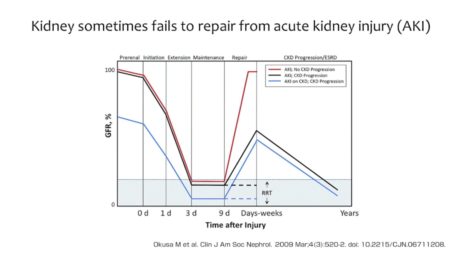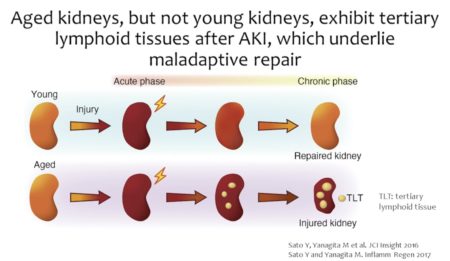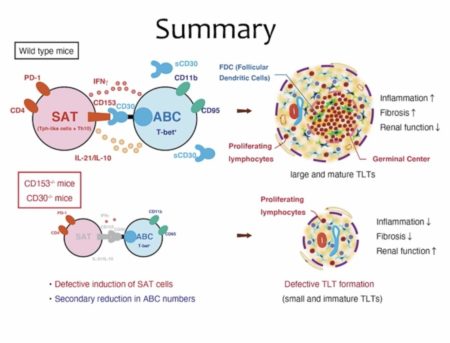Senescence-associated lymphocytes: senescence-associated T cells and Age-associated B cells
This time, we would like to introduce a paper
published by a research group led
by Professor Motoko Yanagita, Department of Nephrology,
Graduate School of Medicine, Kyoto University.
I am a collaborating doctor for CKD (chronic kidney disease) in Kumamoto City.
I was interested in this study
because I treat many patients with CKD every Saturday
as an outpatient at a dialysis hospital in the city.
Another reason is that I myself have involved in CD30 research.

It has been reported that kidney disease in the elderly is more difficult to cure
than in younger people.
Previous research has shown that
ectopic lymphoid tissue called “tertiary lymphoid tissue” is induced
in the kidneys of aged individuals during the chronic phase after injury,
and the possibility that
this tissue prolongs inflammation and may interfere with normal tissue repair.

In this study, two types of lymphocytes that increase with age,
senescence-associated T (SAT) cells,
and age-associated B cells (ABCs),
were newly identified in the mouse kidney.
They discovered that
it interacts within tertiary lymphoid tissue and
promotes the formation of tertiary lymphoid tissue.
They identified the CD153-CD30 pathway as an interacting molecule,
and clarified that blocking this pathway
inhibits the induction of tertiary lymphoid tissues and
promotes renal tissue repair,
thereby improving the prognosis of renal injury.
Moreover, these cells and molecules have also been identified
in similar human pathological conditions.

Therefore, therapeutics targeting immune cells and interacting molecules discovered in this study
may promote recovery from kidney disease in the elderly and delay the introduction of dialysis.

